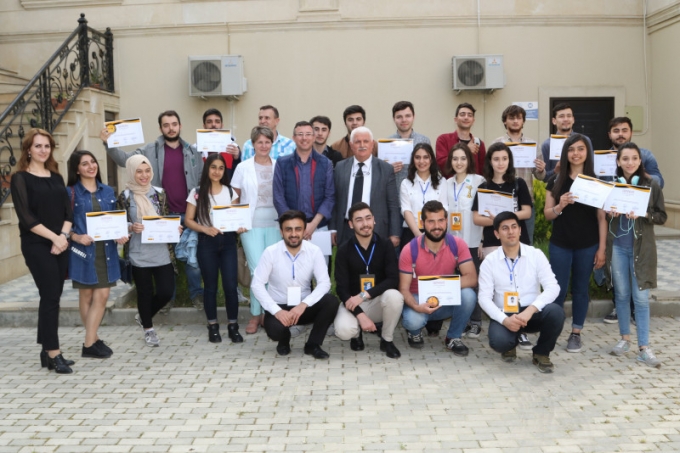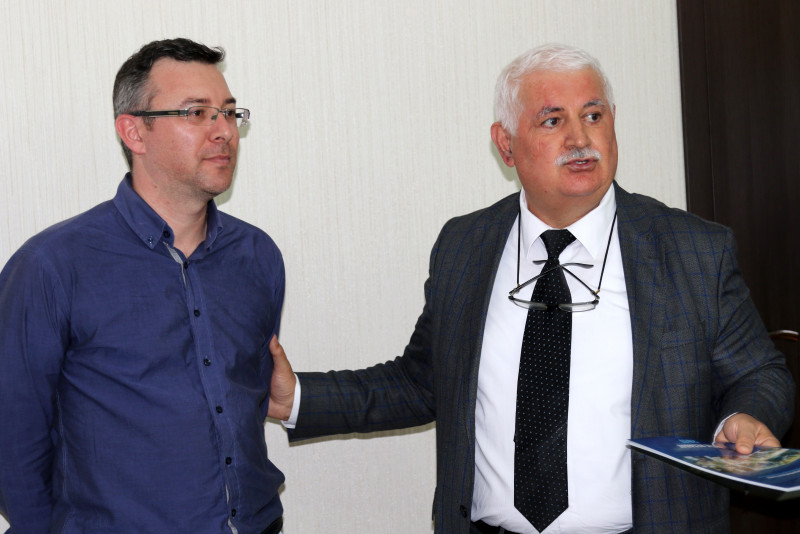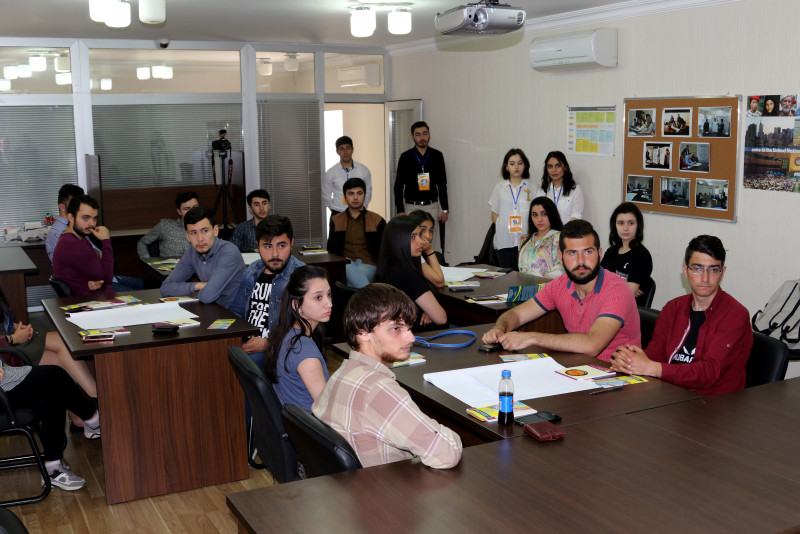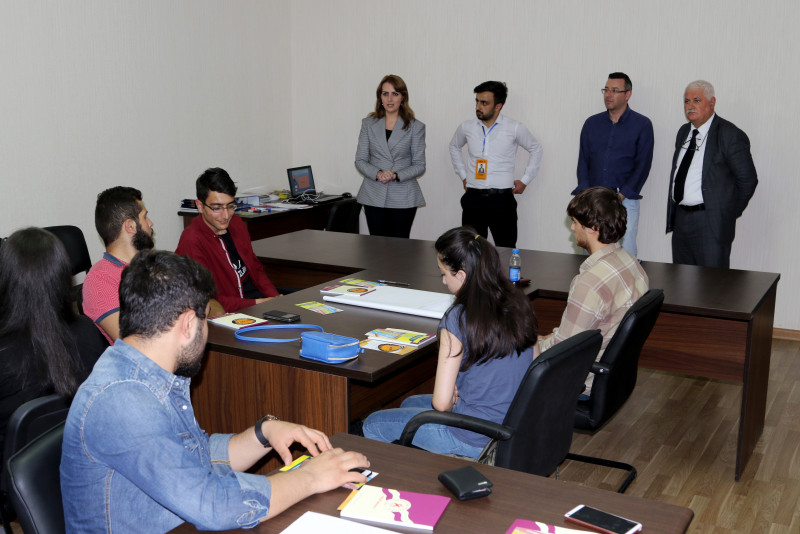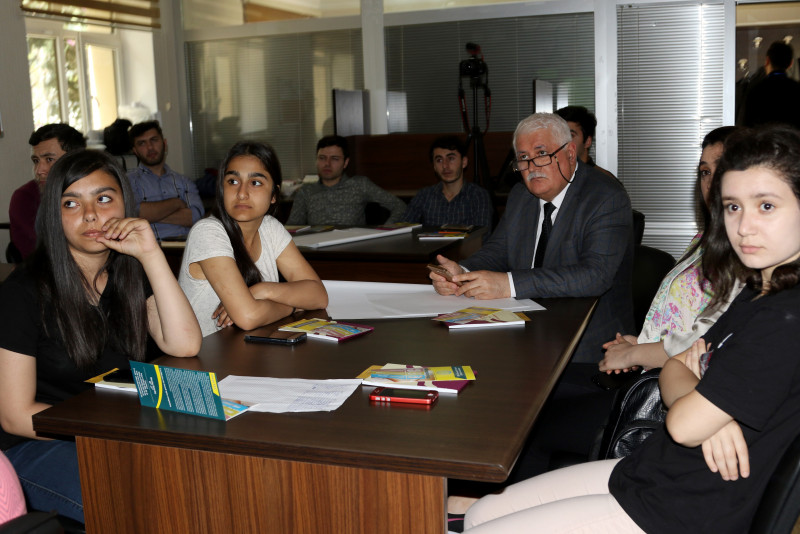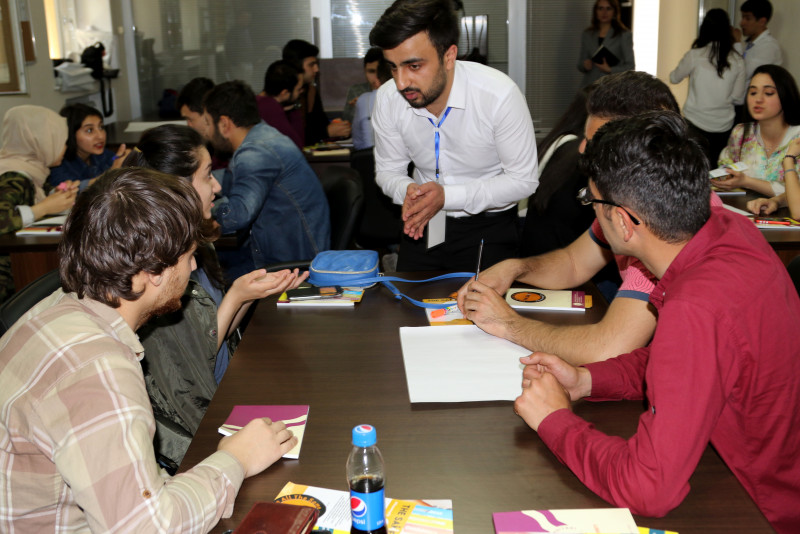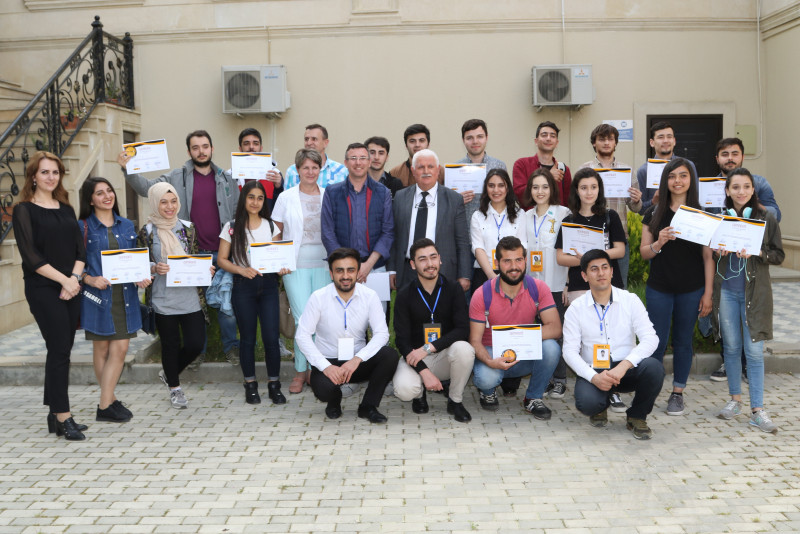On May 5, 2018, THE SAME team which represents Azerbaijan among 50 different countries, at the P2P Challenge, held a workshop on racism and economic development with the support of the International Eurasia Press Fund (IEPF). The workshop was organized in the IEPF office. 20 young and talented students from different universities in Azerbaijan took a part at the workshop.
The President of the IEPF Umud Mirzayev welcomed the participants with a short introductory speech. He spoke about the importance of the selected topic of the workshop and about the long-term experience of the IEPF in the work with the youth. Umud Mirzayev wished success to all the students in their future activity and said that IEPF is always glad to support new initiatives aimed at community development.
During the workshop, which lasted more than 3 hours, the participants were divided into 4 groups. There were 3 main topics for discussion:
- "The causes and solutions of separation in weakly developed countries"
- "The causes of racism in developed countries"
- "The positive impact of solving the problem of racism and separatism on the economic growth"
Each team came up with its own ideas and arguments, which were publicly discussed. The participants also played some interactive games. In the end, the students were awarded the certificate of participation.
The famous writer and publisher from Volgograd, Russia, Aleksandr Tsukanov joined the event. He highlighted the importance of the selected topic for discussion and came up with a new interesting topic to be discussed next time: “If everyone loves each other, then where racism comes from?”
In the end, the students were awarded the certificate of participation.
It should be noted that THE SAME team was created on the basis of "Peer to Peer: Facebook Global Digital Challenge" contest, organized by EdVenture Partners (EVP). The team selected racism as a problem, which is one of the main reasons for online hate speeches. Hence, THE SAME team is aiming to use different strategies and show that the people are all the same no matter what race, nationality, religion, and culture belong they have.


